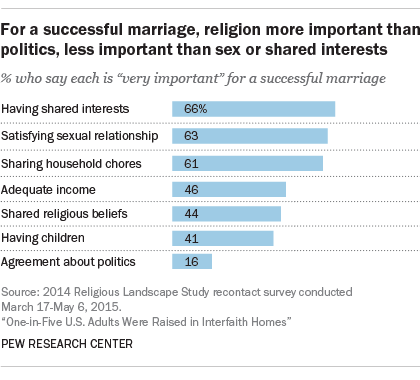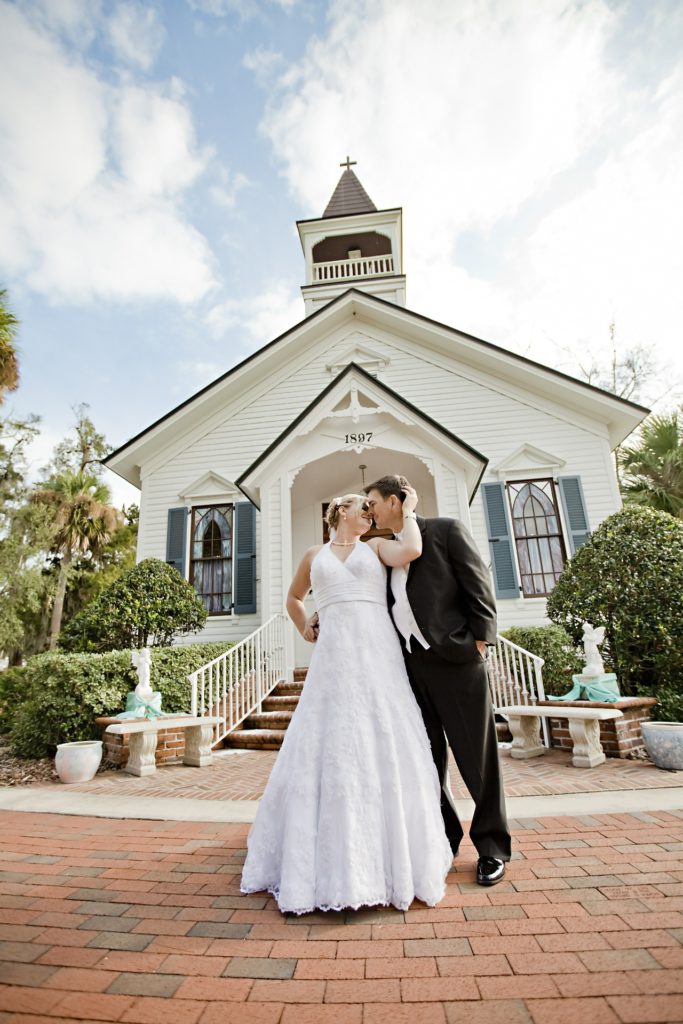New analysis shows that Americans base their marriages more on sexual satisfaction and financial stability than their common faith. These troubling priorities parallel other disturbing trends: the rise of “interfaith” families and religious “nones” in American society.
Shared religious beliefs only ranked as the fifth most significant factor for a “successful marriage” among Americans, according to a report published by Pew Research Center on October 26 that was based on earlier polling data. Only 44 percent of those surveyed cited “shared religious beliefs” as “very important” in a marriage. Respondents ranked having a common faith behind “shared interests” (66 percent), a “satisfying sexual relationship” (63 percent), “sharing household chores” (61 percent), and an “adequate income” (46 percent).

Upside-down values on marriage coincide with other disconcerting developments for U.S. families. More than one in five American adults (21 percent) said they were raised by individuals from differing faith backgrounds. Millennials were the generation most likely to be raised in what Pew designated as “interfaith” households. More than twice as many Millennials (27 percent) experienced a religiously divided home as the “silent” or “greatest” generation (13 percent).
The consequence of the growing proportion of “interfaith” households is an increase in Americans identifying as “nones” – or religiously unaffiliated. Individuals raised by two religiously unaffiliated parents were the most likely to identify as “nones” later in life. However, those raised in a home with parents who had different religious beliefs were also more likely to identify as “nones” as those raised by parents who were both religious. As Pew described it:
Nearly four-in-ten of those who say they had one parent who identified with a religion and another parent who was religiously unaffiliated describe themselves as “nones” today (38%). And one-quarter of those raised by a Protestant and a Catholic are now religiously unaffiliated (26%). One-in-five people who were raised exclusively by Catholics are religious “nones” today, as are 14% of those who say they were raised solely by Protestants.
These trends are only likely to become more pronounced in the future. Pew found that “one-quarter of married adults say their spouse does not share their religion.”





Comment by JH on November 7, 2016 at 2:48 pm
This is a good trend. It means that a majority of people get the priorities straight.
Comment by Blue J on November 7, 2016 at 6:35 pm
That’s right.
The more we become like animals, the more some people regard it as “progress.”